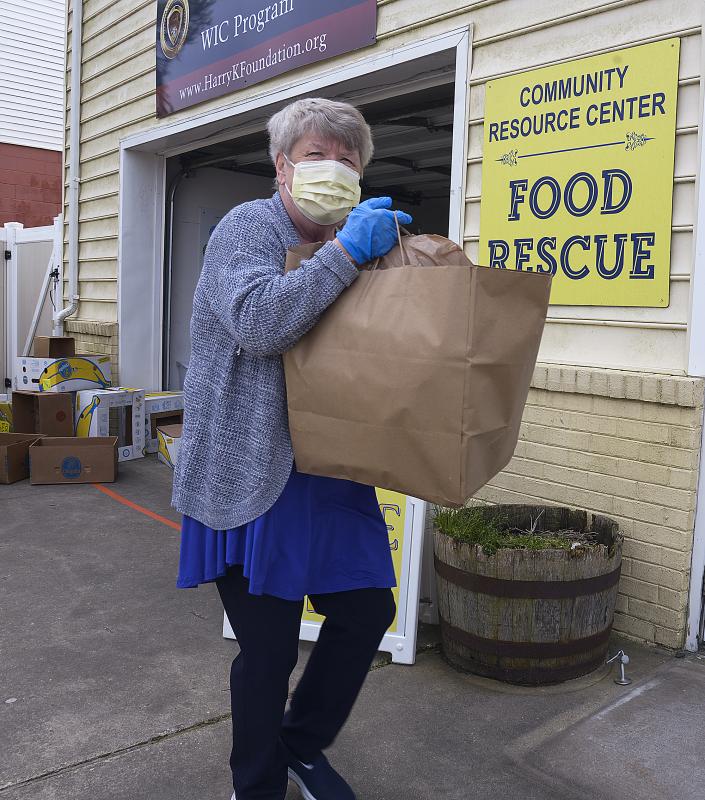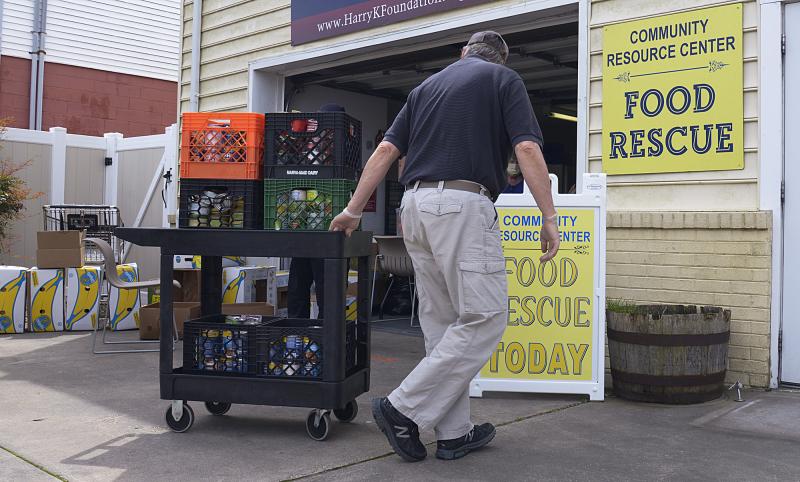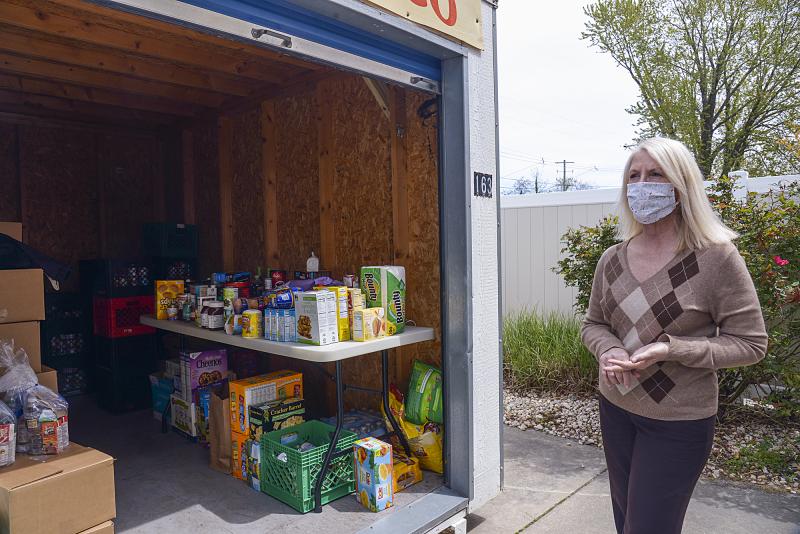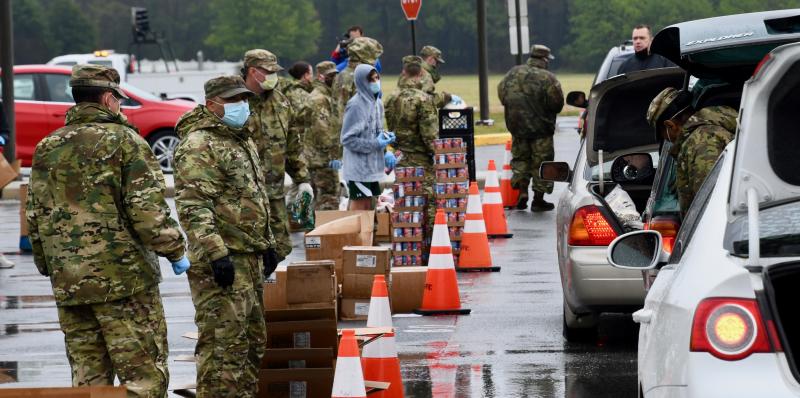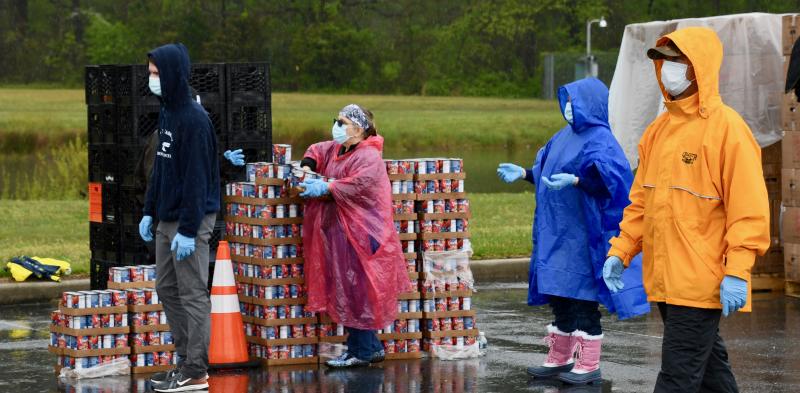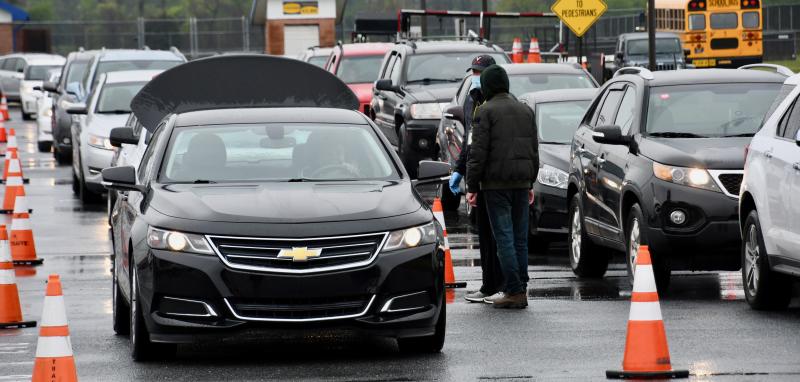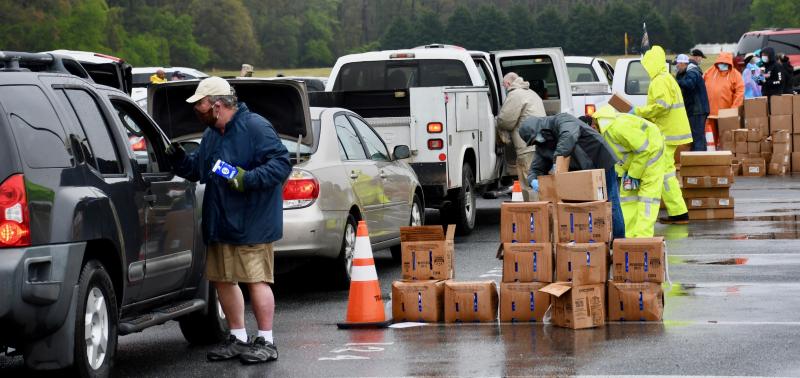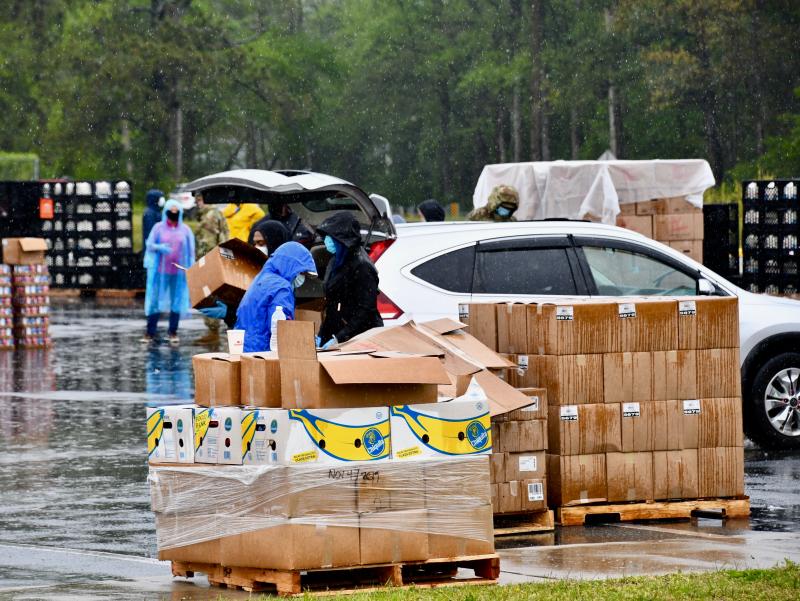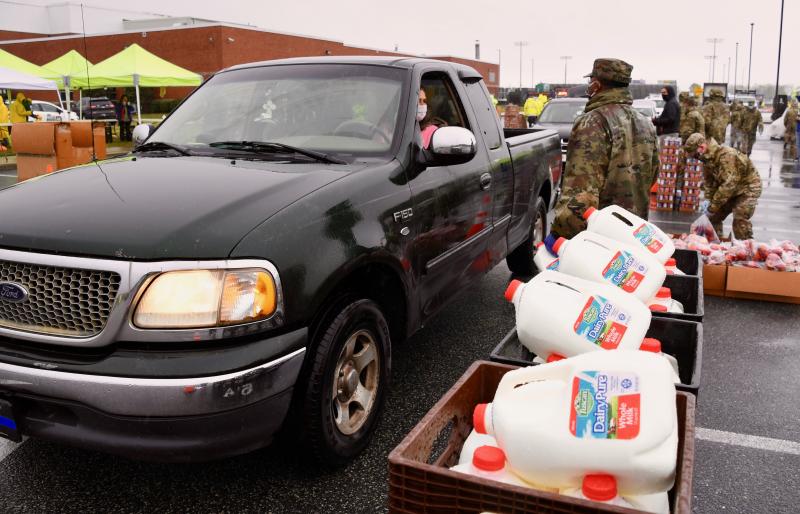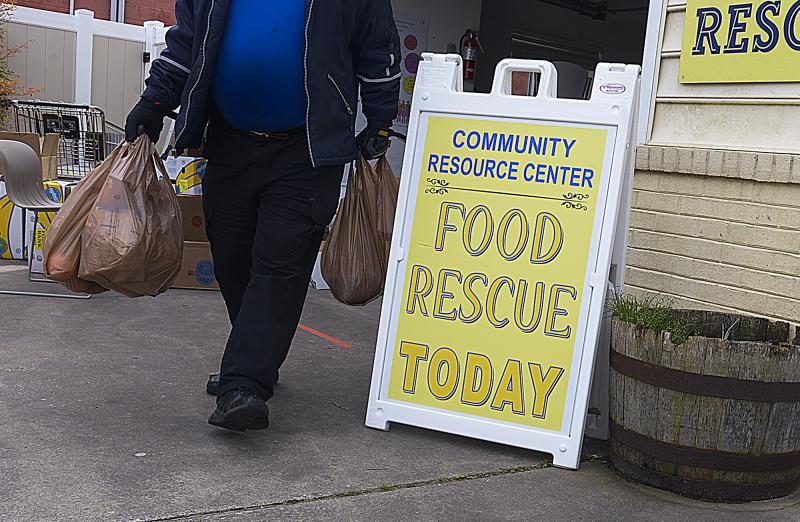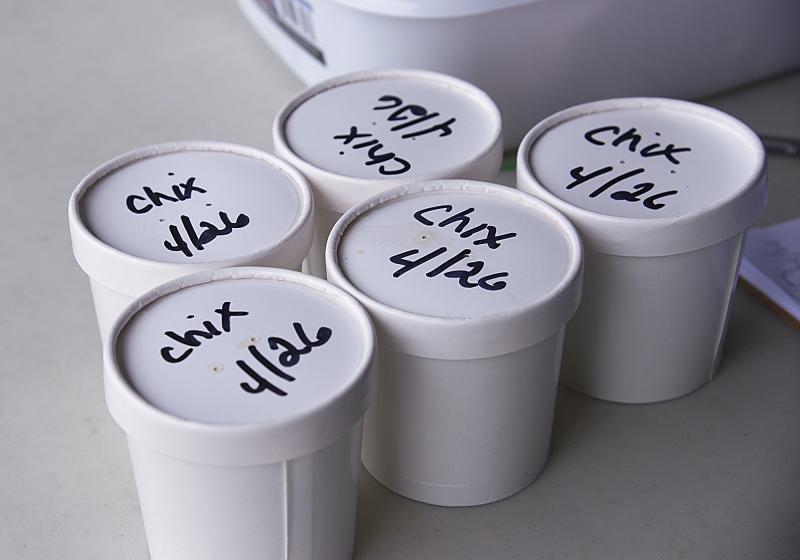As a steady rain fell last week, long lines of vehicles jammed the roads near Sussex Central High School, just to get into the high school parking lot, where other long lines were waiting.
Food Bank of Delaware’s April 24 drive-through mobile pantry served 80,000 pounds of food to 1,681 households during the Georgetown distribution, pantry spokesman Chad Robinson said. Volunteers handed out staples, including milk, cereal, canned goods and apples, loading everything into waiting cars.
The Food Bank had similar distributions in Kent County and New Castle County last week, which Robinson said was the second round of large-scale distributions throughout the state. Robinson said since the onset of COVID-19 in Delaware, the Food Bank has distributed 2 million pounds of food from two large warehouses in Newark and Milford serving 1,000 families a week.
Much like the Food Bank, Milton Community Food Pantry held a drive-thru distribution April 27. Both groups receive food boxes from programs administered by the U.S. Department of Agriculture.
Robinson said the demand for food has been high. As businesses were shut down to reduce the spread of COVID-19, people lost their jobs and their ability to buy food. He said supplies have remained consistent; donations from individuals and small organizations have slowed, but corporate donations have not.
“Whatever the new normal is, we know that some folks will not be going back to work. The economic impact will be larger, especially for lower-income families. We see this as a long haul,” Robinson said.
While the Food Bank is a statewide organization, Cape Region food pantries have also been dealing with increased demand, although Jon DeVoll, president of the Cape Henlopen Food Basket, said the demand hasn’t been quite what he thought it would be.
“It’s a mixed bag,” he said. “We’ve had all kinds of donations, but we haven’t seen a big increase in demand.”
DeVoll said the demand is up 10 percent to 20 percent, but he was expecting an increase of 50 percent. He said the food basket serves a limited area; recipients must live within the Cape Henlopen School District to receive assistance. Typically, the food basket serves 170 to 200 families a month, handing out dry goods and vouchers to Safeway for items such as milk and eggs.
DeVoll said the community has responded to the crisis. “Everybody wants to help, and they are helping,” he said.
Jo Allegro-Smith, director of the Community Resource Center in Rehoboth, is running a food rescue program for those in need. The program collects unused stock from area grocery stores, such as Weis, Giant and Fresh Market, and distributes it to those in need. Allegro-Smith said donations from the stores were down early during the pandemic as the stores had to deal with the initial rush for critical supplies. She said those donations have not gone back up, but the good news is that individuals in the community and foundations such as the Harry K Foundation have stepped up.
“It’s working out, because demand is up,” Allegro-Smith said. “So far, so good.”
She said the rescue program typically gives out 2,000 grocery bags of food per month.
For the food banks, the hope is that this will give people an idea of what those in need go through all the time.
“Hunger doesn’t go on a vacation,” Robinson said. “Hopefully when all this is over, people realize that people struggle with this issue.”
Robinson said the Food Bank is still discussing when to hold the next large-scale distribution.
